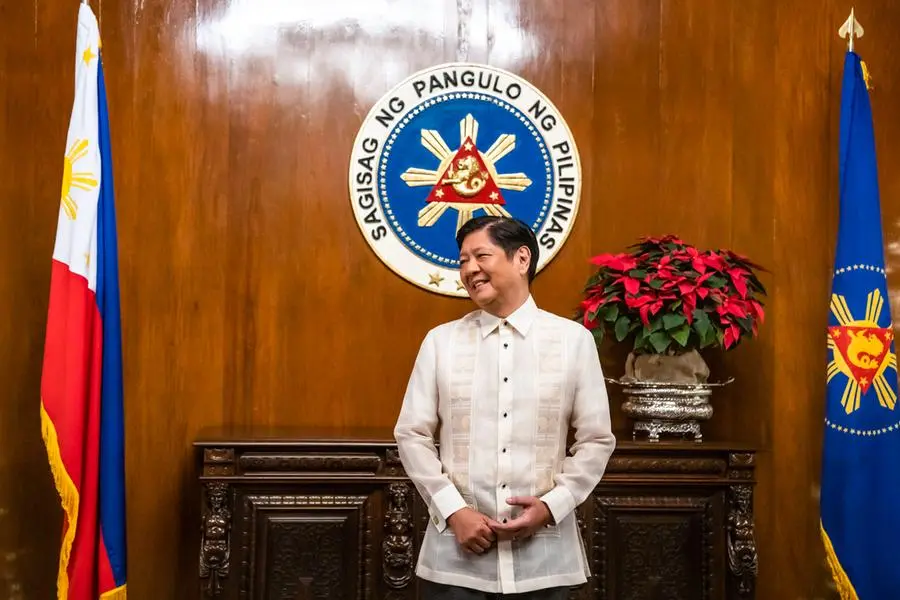PHOTO
The government is ramping up efforts to provide internet access for all Filipinos amid its importance in trade and communication, President Marcos said on Friday.
Marcos made the remark at the grand launching of the National Fiber Backbone (NFB) Phase 1 in Pasay, reiterating his vision of bringing high-speed internet access to the country to create a more digitally improved Philippines.
'I have made it clear since the start of my term that one of the top priorities that this administration recognizes is to create a 'Digital Philippines,'' the President said in his speech.
Marcos pointed out that the project could support the growth of the country's micro, small and medium enterprises, which are at the center of his administration's digitalization efforts.
'So that we get to the point where the sari-sari store doesn't sell only to the village. The sari-sari store can sell anywhere and that brings us into the digital space,' Marcos said.
'Even what we referred to as nano enterprises. I mean, I'm talking about the shoeshine boy, the mechanic, all of these nano enterprises will also have access to high-speed internet and that would give them more opportunities. That is such an important part of the economic transformation that we are hoping to achieve here in the Philippines,' he said.
The President said Filipinos want to receive fast, reliable and affordable internet services.
The NFB Phase 1 is the first and only government-owned fiber backbone in the country, spanning 1,245 kilometers from Laoag, Ilocos Norte to Roces District in Quezon City.
It has an initial 600 Gbps optical spectrum capacity that will serve the needs of the government and the communities along the way, including at least 14 provinces in Northern and Central Luzon, two national government data centers and four Bases Conversion and Development Authority (BCDA) ecozones.
The successful completion of Phase 1 will also empower 346 national and local government offices connected to GovNet, boosting their overall operational efficiency and generating more than P145 million in potential savings annually, Marcos said.
The project will also extend a digital lifeline to more than 3,000 free Wi-Fi sites, enabling direct internet access for approximately 750,000 beneficiaries in Regions 1, 3 and the National Capital Region.
Marcos lauded the efforts of the officials and personnel of the Department of Information and Communications Technology (DICT) as well as private partners and public sectors, including the BCDA, TransCo, National Grid Corp. of the Philippines and the consortium led by Meta for producing such a long-term and multi-phase program.
The President said he looks forward to the completion of five more phases by 2026, which is expected to increase the penetration rate to 65 percent from 33 percent and reach 70 million Filipinos out of the current 115 million population nationwide.
This will also lower the price to as much as $5 per Mbps, Marcos said.
'Even this early, we are assured that the NFB Phase 1 will make a significant impact on our internet connectivity as well as in the day-to-day activities of ordinary Filipinos,' he said.
The DICT created the NBP to provide necessary interventions, policies and infrastructures to enable even the most remote areas to enjoy the benefit of having 'modern and state-of-the-art connections,' he said.
'It is because it is clear that, to us, that the internet has become the backbone of trade, communications, transactions within and amongst communities. Because this backbone links us together, then it serves as the economic spine that props up our growth and supports our development,' the President said.
Copyright © 2022 PhilSTAR Daily, Inc Provided by SyndiGate Media Inc. (Syndigate.info).





















